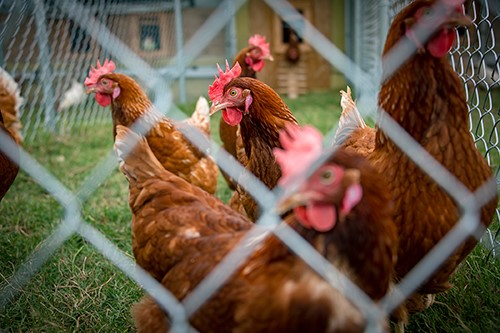Meat industry group warns California’s animal production standards will increase consumer and production costs.

The North American Meat Institute (NAMI) submitted public comments regarding California’s Proposition 12 that call for postponement of the law’s implementation so multiple problems affecting consumers and producers may be addressed.
Prop 12 -- the California ballot initiative passed in 2018 -- creates new minimum requirements on farmers to provide more space for egg-laying hens, breeding pigs and calves raised for veal. These requirements, which apply to farm animals raised in California, would be phased in over the next several years.
Currently, the law requires that animals must be able to turn around freely, lie down, stand up and fully extend their limbs, as established under the Proposition 2 standards more than a decade ago. The new update requires 1 sq. ft. of floor space for egg laying hens starting in 2020 and cage-free housing by 2022. Gestating pigs will require 24 sq. ft. of floor space by 2022. Veal calves will require 43 sq. ft. of floor space by 2020.
NAMI is requesting that the California Department of Food & Agriculture (CDFA) postpone implementation of Prop 12 indefinitely for at least two years or longer to facilitate conversations among the agency, the industry and consumers about the law’s economic impact and to encourage fact-based education concerning the alleged rationales underlying Prop 12. The group also said challenges are expected in courts, which would cause “industry uncertainty, consumer confusion and impose a strain on the already-stretched California judiciary.”
NAMI's comments noted: “Proposition 12 imposes radical changes on the pork and veal industries that in many instances cannot be mitigated through additional guidance from the agency. The industry cannot comply with the law as enacted and provide enough product to California.”
The result of Prop 12 compliance will be significantly higher production costs, coupled with a less-efficient supply chain, meaning that some companies will either choose to, or be required to, discontinue servicing California. “For that reason, Prop 12 will have a dramatic effect on consumers, who will pay more money for pork, veal and egg products and will have less choice in the marketplace, including the possibility of empty store shelves in the short term in some places,” the comments explained.
“To comply with the law’s rigid specifications, approximately 95% of swine breeding operations in the United States must make excessive capital investments to materially alter their current production designs or dramatically reduce their production inventory. In addition, the breeding animals will be less productive because evidence suggests that group housing can lead to increased injuries from mixing animals at vulnerable stages of gestation,” NAMI stated.
NAMI member companies account for more than 95% of the U.S. output of these products. Many NAMI members sell pork and veal to customers in California, and several NAMI members own and raise hogs and veal calves in various states across the country.
“The meat institute appreciates the opportunity to submit these comments,” Mark Dopp, senior vice president of regulatory and scientific affairs and general counsel, said in comments submitted on behalf of NAMI. “NAMI wishes to repeat its request that CDFA postpone implementing Prop 12 for at least two years and longer, as necessary, to ensure conversations and a common understanding among the agency, the industry and consumers about the law’s economic impact and the alleged rationales underlying Prop 12.”
NAMI argued that Prop 12 is “unconstitutional because it is a wholesale extraterritorial intrusion on livestock production practices in other sovereign states and because it imposes extraordinary burdens on interstate commerce with little to no benefit to California.”
About the Author(s)
You May Also Like




.png?width=300&auto=webp&quality=80&disable=upscale)
